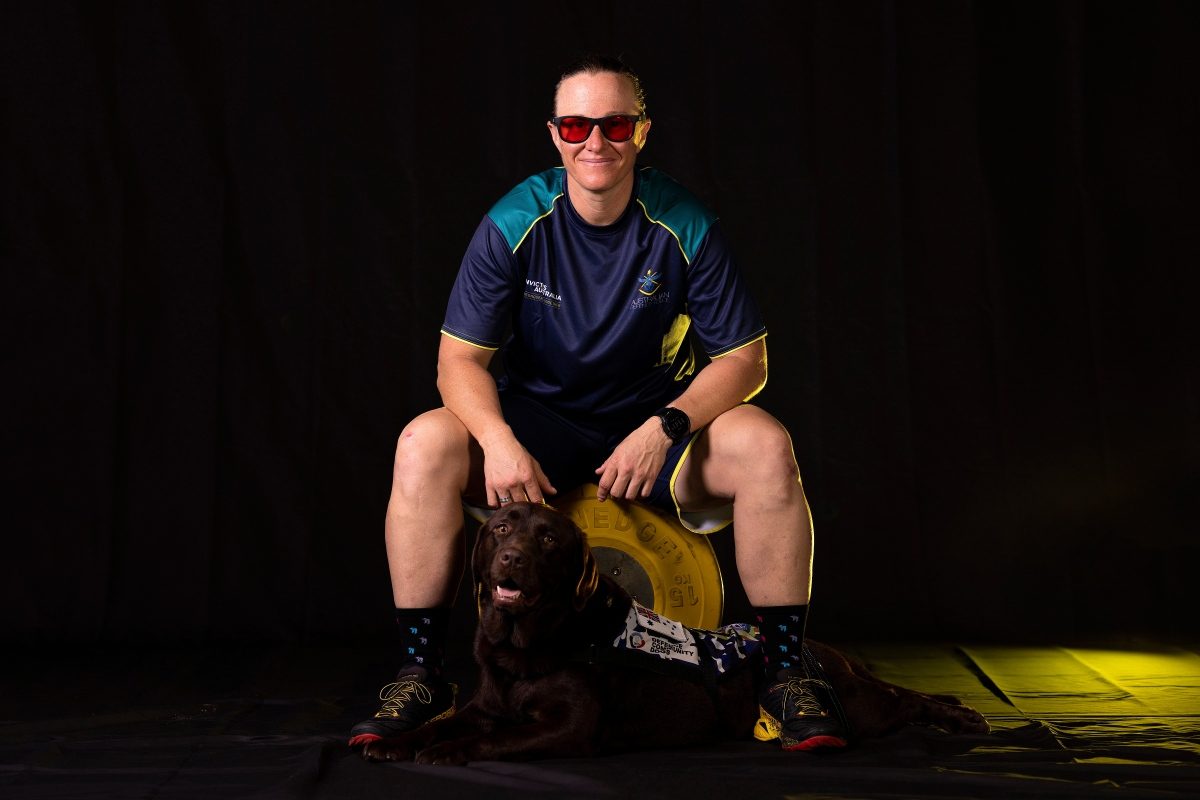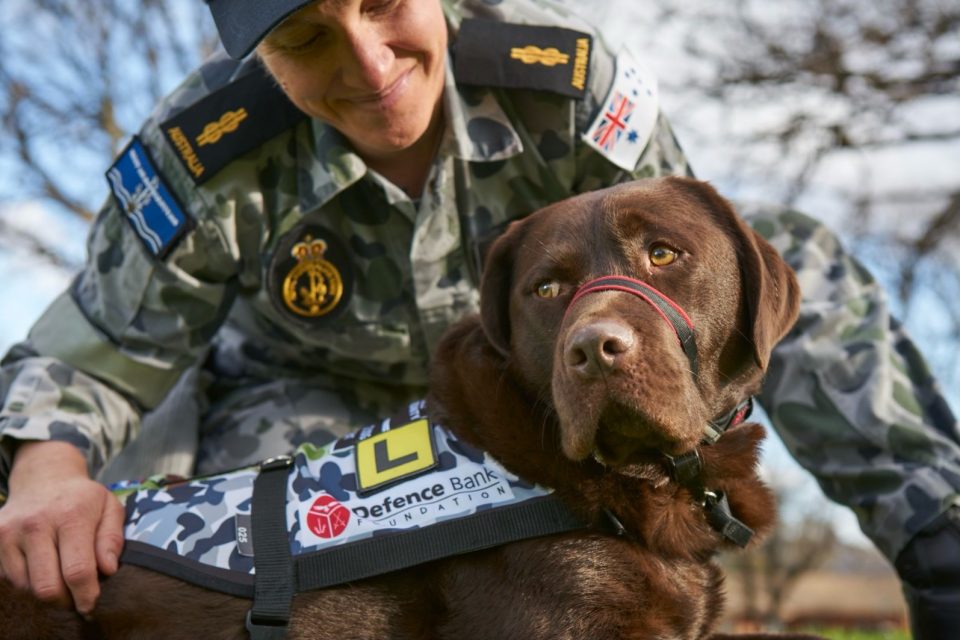
Taryn Dickens and assistance dog Gigi are taking on the world at the Invictus Games in Germany. Photo: Australian Defence Force.
Taryn Dickens is a Royal Australian Navy member, serial sport lover and Canberra local. She also has cone-rod dystrophy, an eye disorder affecting the retina, which causes vision loss.
This September, Taryn will represent Canberra and Australia at the 2023 Invictus Games in Germany, and she’s got her sights on the 2026 Winter Paralympics in Italy.
But it hasn’t always been smooth sailing for Taryn, who remembers feeling “broken” after experiencing the first symptoms of the degenerative condition five years ago.
“I thought I had a migraine and my eyesight was quite kaleidoscope-like with lots of light reflection,” she says.
“I’d had a migraine or two just before that and they kind of just went away so I wasn’t worried about it.
“But then this happened, and after sort of four weeks, it never went anywhere.”




While Taryn waited for the results of tests conducted by an eye specialist in Sydney, she started experiencing depression and anxiety.
“I didn’t have a lot of support in Sydney … so I took to drinking and self-medicating quite heavily while I was there,” she says.
“And that’s when I put my hand up and said ‘I need help and I need more help than you can give me here’ and they admitted me into the mental health unit.
“I was there for about six weeks, which gave me a chance to just take a breath and be around other people who were going through difficult times.”
The day after Taryn left the mental health unit she was diagnosed with the retinal disease, which in most cases leads to legal blindness by mid-adulthood.
Taryn, then in her mid-30s, had been working as a weapons rate electronics technician since 2017, which involves maintaining navy ships’ weapon systems.
She was given the choice of returning to her hometown of Brisbane for a likely medical discharge or moving to Canberra to consider her options.
“I just wanted to keep serving so I thought, ‘I’ll just go to Canberra and stay as long as I can,'” she says.
“I’ve got some great mental health support around me … and it’s given me the strength to keep moving forward.”
Taryn, now aged 40, works in an administration role for the navy with the help of her assistance dog, Gigi, and is trying to break back into sport as a visually impaired athlete.
Growing up, she played soccer, rugby league and rugby union, before moving into kickboxing, hiking and mountain climbing and cycling during her early 20s.
Taryn previously qualified for the COVID-cancelled 2020 road cycling world championships but has now set herself the goal of riding without a tandem.
The philosophy behind the Invictus Games is about using the healing power of sport to support former and current Defence Force members who are injured, wounded or ill.
Taryn is one of 31 Australians to qualify for the games in Düsseldorf, Germany from 9-16 September, where she will represent Australia in cycling, powerlifting and rowing.
She is also a member of two cycling clubs, competed at the national track cycling championships last year and has taken up nordic skiing ahead of the 2026 Winter Paralympics.
“[Sport] gives me something to focus on to get out the energy that is building in me with frustration and a little bit of anger at where my life’s gone,” she says.
“You can let that out and you can see gains and personal bests that remind you that you’re still doing well, you’re still on track and you feel great afterwards.”
Taryn said she hopes being proud, open and honest about her journey – the good parts and bad – will make others feel comfortable about also sharing their experiences.
“A quote that I’ve got on a post-it note in my office and at home that I look at every day is, ‘Find something that you can’t do and then turn into the person who can,'” she says.
“There’s so many things that I thought that I couldn’t do because of my vision impairment and now I’m just trying to turn into a person who can do those things.
“I believe that time can change everything. So if you don’t give up, there’s always more time tomorrow.”












